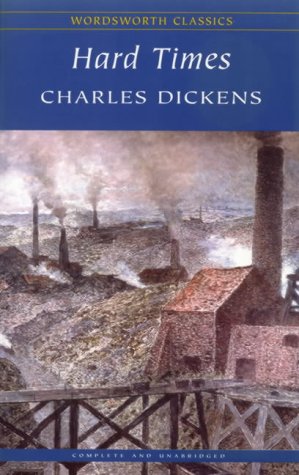I often suspect that Nobel laureate economist and New York Times columnist Paul Krugman was raised on Charles Dickens. A recent column reads as though it came straight out of the 1854 novel Hard Times.
The subject of Krugman’s column was Republican outcry about cleaner air standards:
Earlier this week, the Environmental Protection Agency announced proposed regulations to curb emissions of ozone, which causes smog, not to mention asthma, heart disease and premature death. And you know what happened: Republicans went on the attack, claiming that the new rules would impose enormous costs.
There’s no reason to take these complaints seriously, at least in terms of substance. Polluters and their political friends have a track record of crying wolf. Again and again, they have insisted that American business—which they usually portray as endlessly innovative, able to overcome any obstacle—would curl into a quivering ball if asked to limit emissions. Again and again, the actual costs have been far lower than they predicted. In fact, almost always below the E.P.A.’s predictions.
Hard Times is about life in Coketown, whose skies are forever black thanks to the belching factories. Dickens describes a nightmarish setting:
Coketown lay shrouded in a haze of its own, which appeared impervious to the sun’s rays. You only knew the town was there, because you knew there could have been no such sulky blotch upon the prospect without a town. A blur of soot and smoke, now confusedly tending this way, now that way, now aspiring to the vault of Heaven, now murkily creeping along the earth, as the wind rose and fell, or changed its quarter: a dense formless jumble, with sheets of cross light in it, that showed nothing but masses of darkness:—Coketown in the distance was suggestive of itself, though not a brick of it could be seen.
You can guess how the factory owners react whenever the government threatens to regulate any aspect of their business. Where Krugman speaks of curling into a quivering ball, Dickens talks of falling into pieces like “fragile chinaware”:
The wonder was, [Coketown] was there at all. It had been ruined so often, that it was amazing how it had borne so many shocks. Surely there never was such fragile chinaware as that of which the millers of Coketown were made. Handle them never so lightly, and they fell to pieces with such ease that you might suspect them of having been flawed before. They were ruined, when they were required to send laboring children to school; they were ruined when inspectors were appointed to look into their works; they were ruined, when such inspectors considered it doubtful whether they were quite justified in chopping people up with their machinery; they were utterly undone, when it was hinted that perhaps they need not always make quite so much smoke. (bold italics mine)
Today owners threaten to ship their business overseas. Victorian factory owners had their own threat involving the seas:
[One prevalent fiction] took the form of a threat. Whenever a Coketowner felt he was ill-used—that is to say, whenever he was not left entirely alone, and it was proposed to hold him accountable for the consequences of any of his acts—he was sure to come out with the awful menace, that he would “sooner pitch his property into the Atlantic.” This had terrified the Home Secretary within an inch of his life, on several occasions.
Luckily for the nation, the mill owners ultimately put the greater good above their own narrow interests:
However, the Coketowners were so patriotic after all, that they never had pitched their property into the Atlantic yet, but, on the contrary, had been kind enough to take mighty good care of it. So there it was, in the haze yonder; and it increased and multiplied.
Recall Dickens next time you hear people complaining about clean air regulations.



One Trackback
[…] posted the following passage from Hard Times (1854) in a past post about industries complaining about EPA air regulations, but it captures Trump’s whining as well. […]